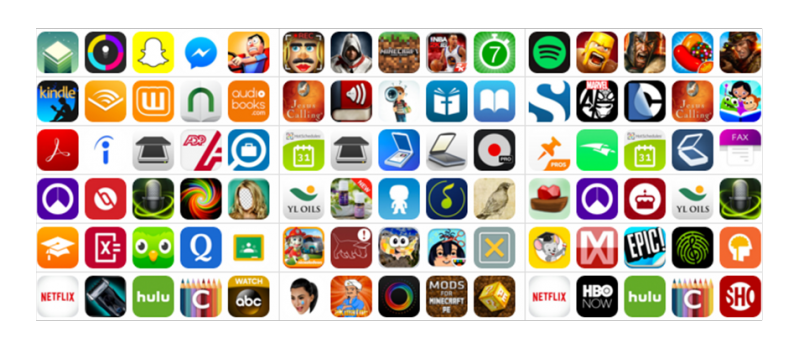The Icon Wars: How To Increase Conversion with 360° ASO
 Alexandra Lamachenka
Alexandra Lamachenka
Last week at the Game Developers Conference I talked to a number of UA folks from the mobile gaming industry. It seems like many of them have mastered search optimization. App page design, however, remains a pain point for marketing and design teams.
This post is about making data-driven decisions about your app page design and how you can avoid team arguments about app icons by a/b testing. I’ll cover some of the common questions I discussed with mobile marketers at the GDC’16 last week:
Why Visual Assets Optimization Matters
Granted that users get to your page guided by app store keyword prompts or via an ad campaign, what are the chances they will actually download the app?
Turns out, the chances are pretty slim, as low as 26,4% average conversion across paid and free apps that we tested at SplitMetrics.
That means that more than 70% of people who found your app are going to leave the page.
How do you fix that?
It is possible to dramatically decrease user drop off from your app store page by optimizing its visual assets. Let’s look at one example.
Below are five icon options. Guess the winning alternative.
The marketing team at Gram Games came up with a number of different ideas for their icon and settled on these five. They then tested these with SplitMetrics and found that alternative A got a higher conversion rate.
Our experiments have shown that you can increase your app store conversion by as high as 26% on average by testing and optimizing just the icon alone. We’ve also seen a case where a mobile publisher in Travel category upped their page conversion by 560% after a couple of such icon tests.
Now, if you consider the cost of paid media traffic saved with the optimized page and add the time in team meetings and arguments about which app icon option to go with, that’s one victorious A/B test right there!
Green or Teal? How To Avoid Conflicts in Design & Marketing Teams

Beyond the conversion improvement, testing helps you rule out the human factor. I remember very well hours spent in discussions about our app store page design when I worked for an app publisher. In startups, it gets even worse, as everybody participates.
Designer: “Here’re 3 shades of green for the background and 3 options for our logo. We can also try with and without the border.”
Product manager: “I like the green. But maybe we can change this round shape to a square. The logo is fine, but looks a bit dark and gloomy, what do you guys think? Perhaps add a little yellow to it? Now that I see it more clearly, it will look great against the dark blue. Yeah. Let’s fix that and start with onboarding asap.
CEO: Showed this to my wife last night, and she thinks it’s too plain. She has a great eye for design. Can you make it “pop” a bit more?
Office Manager: I like the green, but maybe we can go more turquoise-y. Or teal. It’s cute.
CTO: You guys, we’re launching this Thursday, let’s look at the ones we have and roll a dice or something, it’s lunch time.
If you’re in the marketing role, perhaps you’ve spent hours researching app store keywords. You had to squeeze them into 100 characters. Your copywriter wrote a description that you had her rewrite to make sure she gets that one first paragraph just right. You’re invested.
Design matters, and as a mobile marketing guy in charge of your app promotion strategy, how do you deal with 5+ different opinions? You don’t argue. Anyway, as Google research showed a couple of weeks ago, arguing with co-workers is counterproductive, and everyone should feel “heard” or whatever. You don’t argue, you test.
When visitors get to your page from campaigns or via organic search, a couple of seconds is usually an average time lag separating lookers and buyers. The choice of graphics directly impacts conversion and ultimately your bottom line. Obviously, when such risks are at stake, team opinions clash. It doesn’t have to be like that.
In the case of Gram Games, the marketing team had five icons that looked equally attractive, yet only one of them matched the high conversion profile.
Bottom line: When designers and marketers disagree on the color of an icon, it’s time to bring in some real data to mediate. With Gram Games icons, such clashes took a positive turn and actually brought an increase in conversion. Now, that’s a very good case for fighting with numbers, not words.
